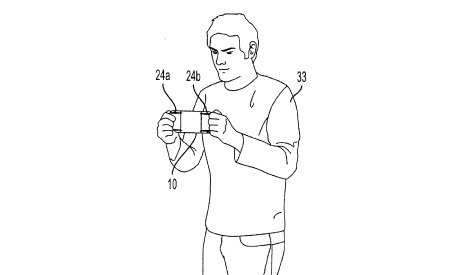Sony patent points to biometric controllers
PlayStation creator's application would cover controllers that read a player's state of mind to drive dynamic responses from software.
In 2009, Nintendo signaled its intention to explore another avenue of user interface with the Vitality Sensor, a peripheral that would monitor a player's pulse and use that information in games. While that add-on is still unreleased, a recent patent application (as spotted by Siliconera) shows that Sony may be interested in testing similar waters.

Filed in December of 2010, the application reveals design diagrams for three different biometric controllers. Biometric-equipped versions of a DualShock 3 and PlayStation Move controller are represented, as is a handheld PlayStation Vita-like device. The patent description details controllers that would read a player's bio-signal data as a form of input.
Bio-data would be captured, analyzed, and then used to alter the setting or state of the software or game. This would potentially allow for automation of various settings related to a player's comfort level and state of mind. It could also allow for software to cater to the player's moment-to-moment experience on an individual basis.
In the application, Sony described a number of potential uses for this technology. Examples included reading a user's stress level to dynamically adjust a game's difficulty, increasing a weapon's accuracy if a player's level of frustration reaches a certain threshold, and in-game characters that can respond to the player's current state of mind.
Got a news tip or want to contact us directly? Email news@gamespot.com
Join the conversation